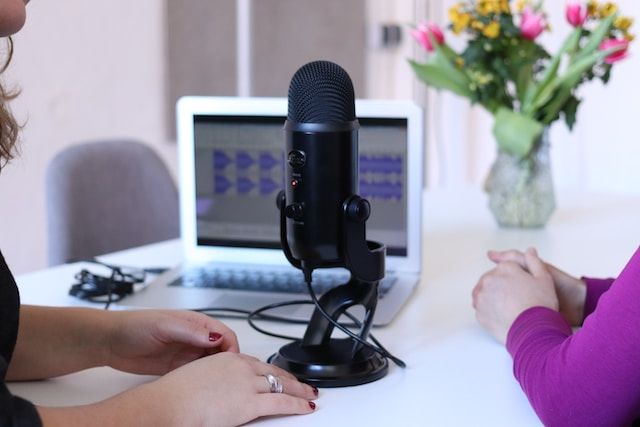Broadcasting and the Rise of Podcasting: An Evolution in Digital Audio

The way we consume media has undergone a dramatic transformation over the years. Traditional broadcasting, which once dominated the airwaves, has gradually given way to a new era of personalized and on-demand content. One medium that has taken center stage in this digital revolution is podcasting. In this blog post, we'll explore the rise of podcasting and its impact on the broadcasting landscape.
From Broadcast to On-Demand
For decades, radio and television broadcasting reigned supreme, with scheduled programs dictating what and when we could consume content. The advent of the internet and the widespread availability of portable digital media devices paved the way for a more personalized and flexible approach to media consumption. This shift led to the rise of podcasting, a medium that offers listeners the freedom to choose their favorite topics and listen to episodes at their convenience.
Podcasting: A Definition
Podcasting is a form of digital audio broadcasting that allows creators to produce and distribute audio content via the internet. Podcasts cover a wide range of subjects, from educational and informational to entertaining and storytelling. They can be enjoyed on various devices, including smartphones, tablets, and computers, making them easily accessible to a global audience.
The Appeal of Podcasting
- Niche Content: One of the main reasons for the popularity of podcasting is the availability of niche content. Unlike traditional broadcasting, which caters to a broad audience, podcasts cover specific topics of interest, catering to unique communities and providing specialized knowledge and insights.
- Convenience and Portability: With busy schedules and the desire for on-the-go entertainment, podcasting offers the perfect solution. Listeners can enjoy their favorite shows while commuting, exercising, or doing chores, making the most of their time.
- Intimacy and Connection: Podcasts create a sense of intimacy between hosts and listeners. The conversational style of most podcasts fosters a connection and engages listeners on a deeper level, leading to a more immersive and enjoyable experience.
- User Engagement: Unlike traditional broadcasting, which is predominantly one-way communication, podcasting encourages listener engagement. Through comments, reviews, and social media interactions, listeners can actively participate and contribute to the podcasting community.
The Impact on Broadcasting
The rise of podcasting has disrupted the broadcasting industry, presenting both challenges and opportunities. Here are a few key impacts:
- Diversification of Content: The podcasting landscape has opened doors for diverse voices and perspectives that may not have found a place in traditional broadcasting. Independent creators and underrepresented communities now have a platform to share their stories, ideas, and expertise.
- Fragmentation of Audiences: Traditional broadcasters are facing increased competition as audiences fragment across various podcasting platforms. This shift has prompted broadcasters to explore podcasting as an extension of their brand and a way to reach new audiences.
- Adapting to On-Demand Culture: With the rise of podcasting, broadcasters have had to adapt to the on-demand culture of consumers. Many broadcasters now offer podcast versions of their shows, making their content available to listeners who prefer flexible scheduling.
- Innovation and Experimentation: The emergence of podcasting has sparked innovation within the broadcasting industry. Traditional broadcasters are exploring new formats, storytelling techniques, and interactive elements to engage listeners and stay relevant in the digital age.
The rise of podcasting has transformed the way we consume audio content, offering unprecedented convenience, diversity, and personalization. While traditional broadcasting remains relevant, podcasting has emerged as a powerful medium that empowers creators and connects listeners in unique ways. As podcasting continues to evolve, it will undoubtedly shape the future of digital audio, leading to exciting developments in content creation, distribution models, and technological advancements. So, whether you're a podcast enthusiast or a broadcasting aficionado, there's no denying that the future of audio entertainment is bright and filled with endless possibilities.
